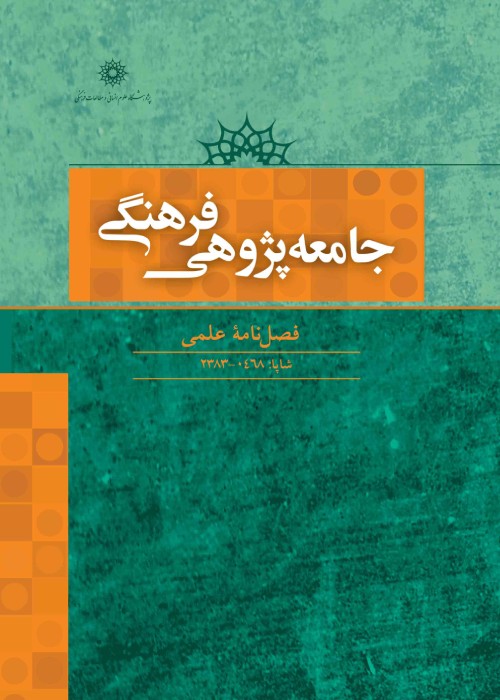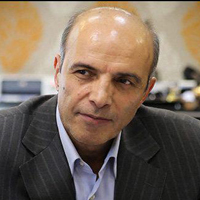The habit of "self-interest" in the political-administrative structure of contemporary Iran
Abstract
One of the less discussed aspects of corruption in the political-administrative structure of contemporary Iran is its habitual aspect. This issue, as one of the influential factors in the development process, has been going on in a stable way in the contemporary history of Iran; For this reason, the current research, focusing on the first Pahlavi government, which is the dividing line of the appearance of modernity in the structure of the government in contemporary Iran, and based on Norbert Elias's process theory and using the historical analytical method, investigates personal gain (one of the main components of political corruption). ) in the political structure of contemporary Iran. Examining examples of this behavior in the governments of the Qajar and Pahlavi dynasties shows its prevalence (multiplicity) at all levels of power and its continuity in the investigated periods. These findings, along with paying attention to the point that this behavior has continued in the Pahlavi governments - which changed the relations and formation of the government through modernization - also prove that personal interest is a habit that goes hand in hand with the changes in the structure of the government towards modernization. did not and as a result its habitual requirements have continued to reproduce this behavior in the political-administrative structure of contemporary Iran.
Key words: personal interest, atawarah, habitual requirements, political structure, modernization
Extended abstract
It is important to deal with political corruption in various research fields, including in relation to the issue of development. One of the main components of political corruption is "personal gain" and deviation from the pattern or rule related to political power must be for the personal benefit of the holder of political power to be considered political corruption (Golmohammadi, 2012). One of the issues related to political corruption in the public and scientific environment of Iran is the politicized view that this issue (political corruption) and in fact the hidden personal gain in it by highlighting the role of individuals (politicians and government officials) ) and explains based on their individual characteristics. Acknowledging the fact that individual characteristics such as class origin and character, personality type, the person's position in the power pyramid, etc. are effective on the personal interest of individuals in the government structure, it is stated that the mere or excessive emphasis, on the role of individuals and their individual characteristics prevents the understanding of the complex process of the occurrence of this behavior in the political-administrative structure, because the importance of dealing with the structure (network of mutual dependencies) that through behavioral-emotional patterns (social habits) not only allows the occurrence It gives people this behavior, but it is less likely to lead them to this behavior. The current research aims to investigate the personal interest in the political-administrative structure of contemporary Iran (among politicians and government officials) by focusing on the first Pahlavi government, which is the dividing line of modernism in the government structure in contemporary Iran. In fact, the question in this research is: How is the existence of personal gain in the political-administrative structure whose formation has been changed by modernizing measures explained? For this purpose and in accordance with the theory of Norbert Elias that "later states arose from previous formations and configurations" (Elias, 2012: 244), first the examples of this behavior in the states of the Qajar dynasty (without considering the constitution as a stream of modernization in The structure of the late Qajar states made some changes), and then we examine the modernist states of the first and second Pahlavi. This research is based on interpretative paradigm, and it was done with case-oriented approach and historical-analytical method. In this method, research is based on a type of context, temporality and causal conditions. The most fundamental difference that the historical-analytical method has with other methods is the type of research data and the way they are used. Although many sociologists and historians doubt the necessity of narrative in historical sociology, historical sociology recommends emphasizing the connection of a historical process that may not exist to reality, and this implies that the present includes the past; That is, the past that we intend to know more about is how the present has been reconstructed (Hamilton et al., 2008: 112). Based on this, historical analysis does not mean the use of data related to the past, but the narration of the sequence of events and contextual, temporal and processual analysis of historical events. Examining the examples shows the extent and continuity of personal gain in the political structure of the examined governments. Based on the extent (multiplicity) of this behavior, we concluded that this behavior is ongoing in the political structure of contemporary Iran as a habit that carries habitual requirements, and it should be explained accordingly. Based on its continuity, especially in the Pahlavi governments, which created a transformation in the relations and formation of the government with the strategy of modernization, we concluded by citing Elias' theory that this behavior (personality structure) has not changed along with the changes that happened in the government structure. , and as a result, its habitual requirements have persisted. The importance of explaining personal gain from the habitual aspect that leads to a more accurate understanding of the complex process of the occurrence of this behavior in the political structure of contemporary Iran is important because it is a necessary step in the direction of more targeted and correct intervention to correct this behavior.
- حق عضویت دریافتی صرف حمایت از نشریات عضو و نگهداری، تکمیل و توسعه مگیران میشود.
- پرداخت حق اشتراک و دانلود مقالات اجازه بازنشر آن در سایر رسانههای چاپی و دیجیتال را به کاربر نمیدهد.




